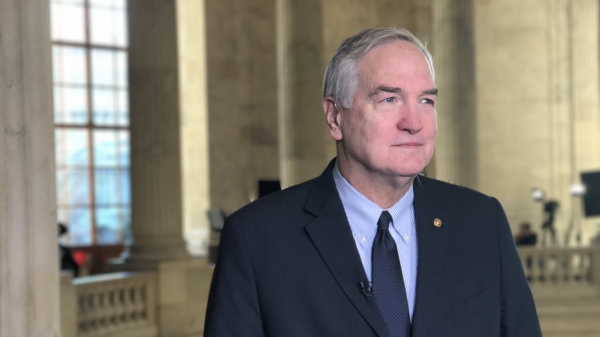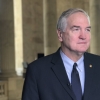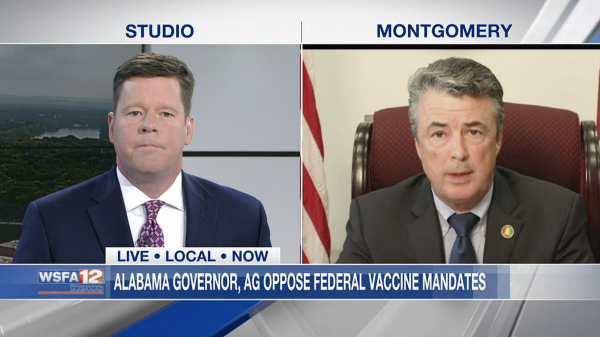By Lee Hedgepeth
Alabama Political Reporter
WASHINGTON, D.C. – Yesterday the United States Supreme Court issued their decision in Lane v. Franks, a decision arising from the 2006 Central Alabama Community College scandal involving the firing of then State Representative Suzanne Schmitz from her position there, and the subsequent, alleged retaliation by the institution against Edward Lane, the employee of the school who fired her.
Mr. Lane had been hired by CACC as director of their CITY (Community Interactive Training of Youth) Program, for which Rep. Schmitz was also employed. Lane, after discovering that Schmitz was being paid while not showing up for regular office hours, requested that she show up in the organization’s Huntsville location to serve as a counselor. Schmitz refused, and Lane fired her.
Rep. Schmitz then pledged to retaliate against Lane, telling another CITY employee, Charles Foley, that she intended to “get him back” for firing her. The Court’s opinion also noted that Rep. Schmitz additionally said that if Lane ever requested money from the State legislature for the program, she would tell him, “you’re fired.”
These events drew the attention of the Federal Bureau of Investigation, which launched an investigation into CITY’s employment of Schmitz, culminating in her arrest and eventual conviction on three counts of mail fraud and four counts of theft concerning a program receiving federal funds. The jury found that “Schmitz had collected $177,251.82 in federal funds even though she performed virtually no services, generated virtually no work product, and rarely even appeared for work at the CITY Program offices.” In addition to her sentence, she was required to pay back the federal funds she had received.
During the Representative’s trial, Lane – under subpoena – testified concerning why he fired Schmitz from the program. A few months after the trial, twenty-nine city employees were fired, including Lane. According to the Supreme Court’s opinion, “shortly thereafter, however, Franks rescinded all but two of the twenty-nine terminations – those of Lane and one other employee.”
Mr. Lane filed suit, claiming that Steve Franks, the then president of CACC, had fired him in retaliation for his testimony. Though lower courts had decided that Lane, testifying about knowledge he had gained from his job, was not protected by the First Amendment and therefore could be fired for his testimony against Schmitz, the Supreme Court, in a unanimous opinion delivered by Justice Sonia Sotomayor, held the opposite.
“Almost 50 years ago,” the opinion begins, “this Court declared that citizens do not surrender their First Amendment rights by accepting public employment… Today, we consider whether the First amendment similarly protects a public employee who provided truthful sworn testimony, compelled by subpoena, outside the course of his ordinary job description. We hold that it does.”
The Court held that Lane, who has sued Franks for monetary damages, could not receive any compensation, as Franks was protected from lawsuit by the doctrine of sovereign immunity, which holds that public officials have leeway in interpreting ambiguous law, and cannot be sued for reasonable, but mistaken decisions.
Essentially, in this respect, the Court held that Franks may well have not known that Lane’s sworn testimony was protected by the First Amendment at the time he fired him.
The ruling provides welcome legal protection for whistleblowers nationwide, as it clearly establishes that knowledge obtained in an official capacity is not privileged under oath, and that they cannot be fired for such testimony.
Notably, Attorney General Luther Strange provided oral argument before the Supreme Court in the case, furthering nearly exactly the logic that the Court used in its decision. Strange had argued that Lane’s testimony was protected by the First Amendment, but that President Franks was immune from suit, as the law had not been clearly established.
This month concludes the Supreme Court’s term, though they will reconvene in October.
The justices have already agreed to hear another case from the Yellowhammer State next term, this time on the GOP legislative redistricting in 2011, which the Alabama Legislative Black Caucus and the Alabama Democratic Conference argue are racially discriminatory and will lead to voter dilution in future elections. If the Court decides in their favor, results from any elections that have occurred before then, including the recent June 3 primary and the upcoming July 15 runoff, may be overturned.



















































